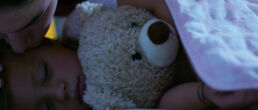Strategies to Put Your Baby to Sleep
0 Comments5 Minutes
Newborns have difficulty distinguishing between day and night, which explains their short bursts. However, when your baby is a few weeks old, he can start to teach himself the…
Sleep Myths You Should Know
0 Comments3 Minutes
Experienced parents, friends, and the community give you well-intentioned advice about their parenting. But how can you be sure that their advice is correct? Let's get help from…
Newborn Infants’ Crib Sleep
0 Comments2 Minutes
How and where to put your newborn to sleep is a personal choice, but a hood or crib has some advantages for a newborn. Since your baby is tiny when he's just born, he may be safer…
The Link Between Sleep and Development
0 Comments3 Minutes
Getting enough sleep is important for a young child for many reasons, such as restoring energy, creating brain connections, and giving the mother and father a necessary break. But…
Your Baby’s Sleep Basics
0 Comments5 Minutes
Newborns sleep a lot, usually 16 to 17 hours a day. But most babies don't sleep for long periods of time, day or night, during the first few weeks of life. As a result, your…
Why Does My Baby Suddenly Wake Up at Night?
0 Comments2 Minutes
Regardless of whether falling asleep before bedtime or waking up suddenly during the night becomes an issue, sudden sleep problems are common even for the best sleepers. Starting…
Why Does Your Baby Suddenly Wake Up at Night?
0 Comments3 Minutes
Your baby's sleep patterns can be affected by many things such as diseases, holidays, changes in his life and development process. Infants between 6 and 10 months of age often…
How Can I Teach My Baby to Sleep on Her/His Own?
0 Comments3 Minutes
Keys that help the baby learn to put himself/herself to sleep should establishing a calm nighttime routine, setting a bedtime when he's awake, and giving him/her plenty of chances…
When Does Your Baby Start Sleeping Through the Night?
0 Comments2 Minutes
“Sleep through the night” usually means 8 to 12 hours of sleep without the need for bedtime feeding. Almost all babies can sleep through the night during the first month, but this…
How Do You Prevent Your Baby From Having Nightmares?
0 Comments4 Minutes
It is very difficult to know what causes the distress your child experiences at night unless he/she says that he/she has a nightmare. Toddlers have many possible reasons for…
- 1
- 2










